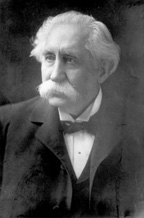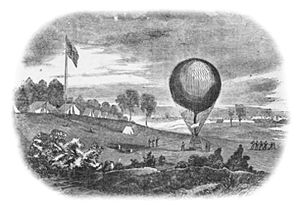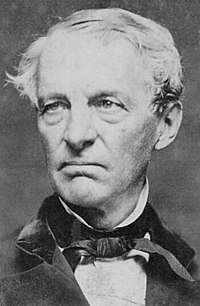 |
| Confederate Works at Manassas | | |
|
HQRDS. DEPARTMENT NORTHEASTERN VIRGINIA
Arlington, June * __, 1861.
Lieut. Col. E. D. Townsend,
Asst. Adjt. Gen., Headquarters of the Army:
COLONEL: I have the honor to submit the following plan of operations, and the composition of force required to carry it into effect, in compliance with the verbal instructions of the General-in-Chief:
The secession forces at Manassas Junction and its dependencies are supposed to amount at this time to:
Infantry……23,000
Cavalry…… 1,500
Artillery……. 500
25,000
We cannot count of keeping secret our intention to overthrow this force. Even if the many parties intrusted with the knowledge of the plan should not disclose or discover it, the necessary preliminary measures for such an expedition would betray it; and they are alive and well informed as to every movement, however slight, we make…
The objective point in our plan is the Manassas Junction. This is covered by the enemy’s troops stationed at Centreville, Germantown, Fairfax Court-House, Fairfax Station, a place between Fairfax Station and Sangster’s, andon the Occoquan….
…The country lying between the two armies is mostly thickly wooded, and the roads leading across it, except the turnpikes and railroads, are narrow, and in places sunken by the wear of travel and wash of rains…
Leaving small garrisons in the defensive works, I propose to move against Manassas with a force of thirty thousand of all arms, organized into three columns, with a reserve of ten thousand…
The enemy is said to have batteries in position at several places in his front, and defensive works on Bull Run and Manassas Junction. I do not propose that these batteries be attacked, for I think they may all be turned. Bull Run, I am told, is fordable at almost any place. After uniting the columns this side of it, I propose to attack the main position by turning it, if possible, so as to cut off communications by rail with the South, or threaten to do so sufficiently to force the enemy to leave his intrenchments to guard them; if necessary, and if I find it can be done with safety, to move a force as far as Bristoe to destroy the bridge at that place…
…Believing the chances are greatly in favor of the enemy’s accepting battle between this and the Junction, and that the consequences of that battle will be of the greatest importance to the country, as establishing the prestige in this contest on the one side or the other-the more so as the two sections will be fairly represented by regiments from almost every State-I think it of great consequence that, as for the most part our regiments are exceedingly raw and the best o f them, with few exceptions, not over steady in line, they be organized into as many small fixed brigades as the number of regular colonels will admit, these colonels commanding brigades to be assisted by as many regular officers as can be collected for the purpose, so that the men may have as fair a chance as the nature of things and the comparative inexperience of most will allow.
….I have the honor to be, very respectfully, your obedient servant,
IRVIN McDOWELL
Brigadier-General, Commanding.
McDowell’s plan was sound and also shows an awareness of the difficulties associated with striking a decisive blow with amateur soldiers. The desire of McDowell to reach as far as Bristoe (much to the rear of the Confederate left) is little remarked on by historians.
Official Records, Series I, Vol 2, Page 720











